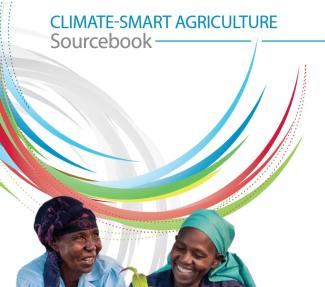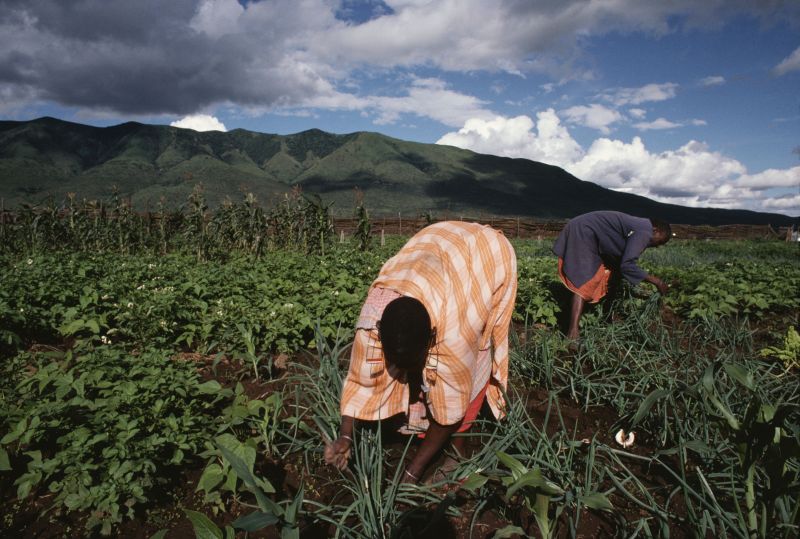Nutrition
Climate-smart agriculture

Its goal is:
- increasing farmers’ productivity and income over the long term;
- supporting climate change adaptation and building climate resilience from the farm to the national level and
- contributing to climate change mitigation by reducing greenhouse gas emissions or increasing carbon sequestration in agriculture.
CSA means much more than simply applying individual climate-smart agricultural techniques at the farm level. It is a holistic approach that includes many locally adapted, complementary practices that lead to synergies that serve CSA goals. Consistent implementation requires action at both the farm and the landscape level. The goal is to achieve resilience and climate protection on a large scale.
In a study based on an extensive review of the relevant literature as well as field research, the SLE team was able to infer important criteria for the successful implementation of climate-smart agriculture (see main article). Progress towards CSA depends on political will, which should be reflected in corresponding national measures, priorities and coordination between the various hierarchies.
Kenya is in a strong position to act. The East African country has signed a multitude of international treaties on climate change and agriculture as well as all relevant agreements on climate protection and adaptation, such as the Africa CSA Alliance. Climate change and its challenges – particularly for agriculture – are high on the national agenda. The national CSA framework programme is the core document that informs every step towards implementing CSA and is implemented by a CSA task force.
The focus is on increased productivity. Resilience building comes second and mitigation third. The CSA framework programme emphasises the need for better coordination between the relevant actors, which is particularly necessary following devolution, the process that transferred legislative and executive powers to the counties in 2010. Information, decision-making and implementation channels must therefore be reestablished at the county level. (ms)
Link
Climate-smart agriculture sourcebook by the FAO:
http://www.fao.org/docrep/018/i3325e/i3325e.pdf








